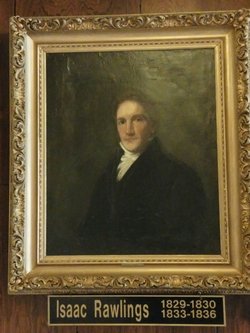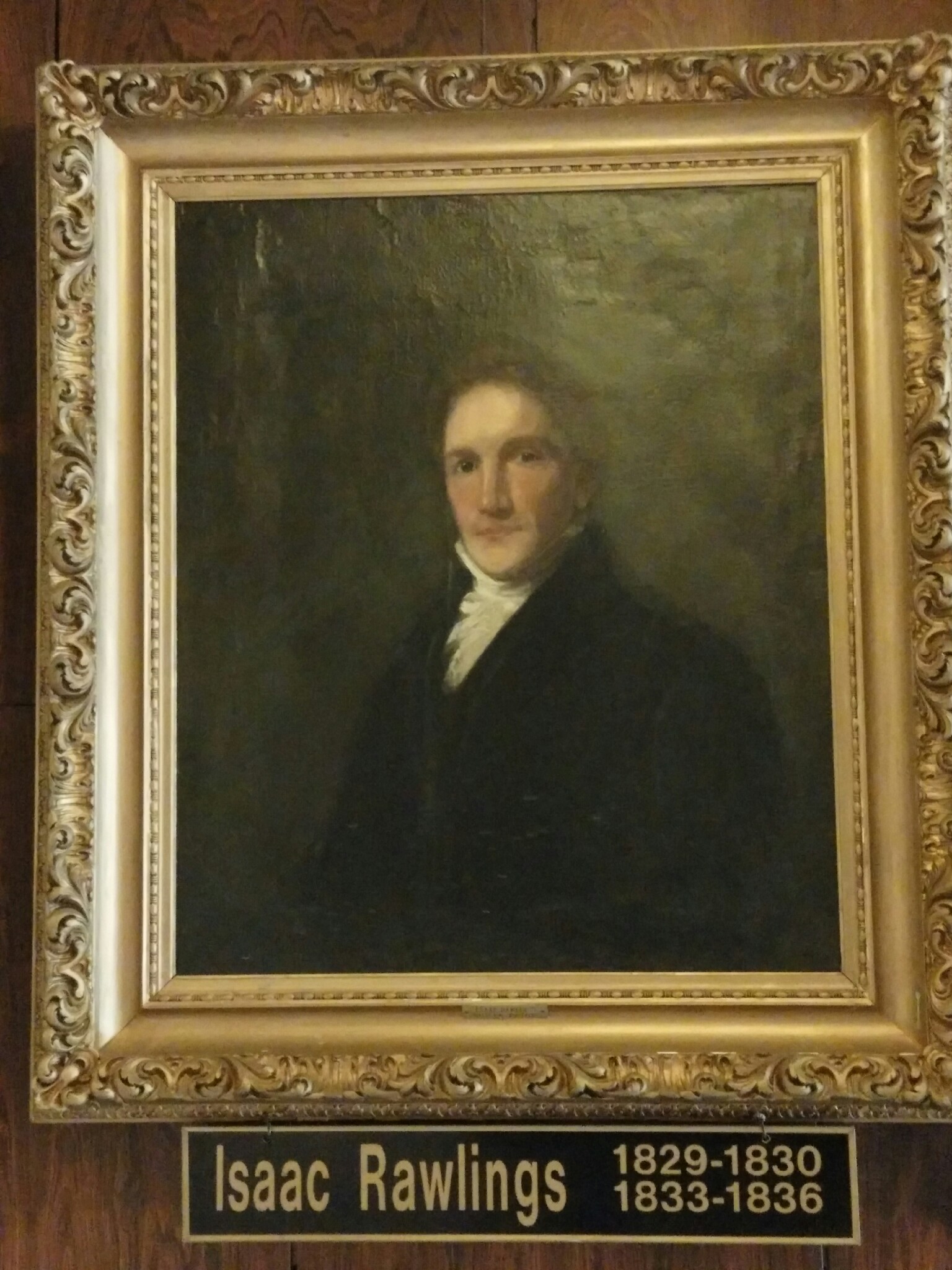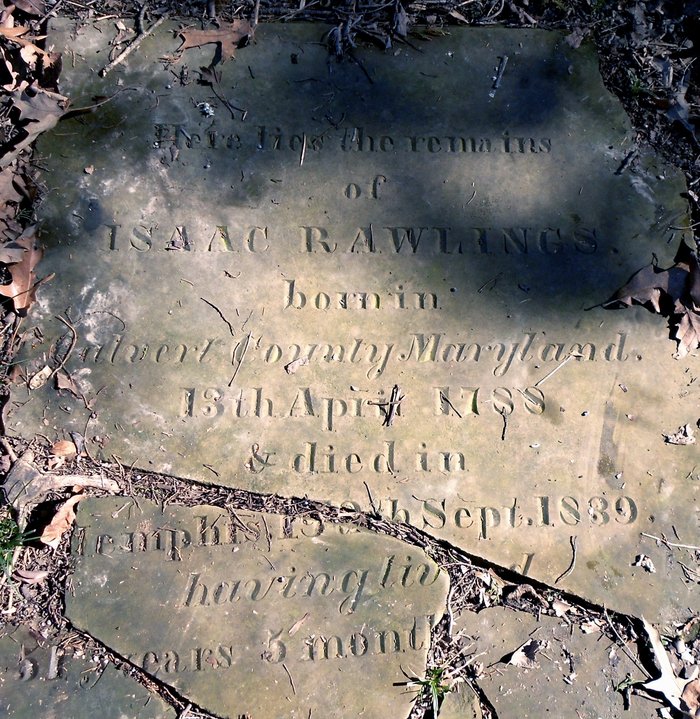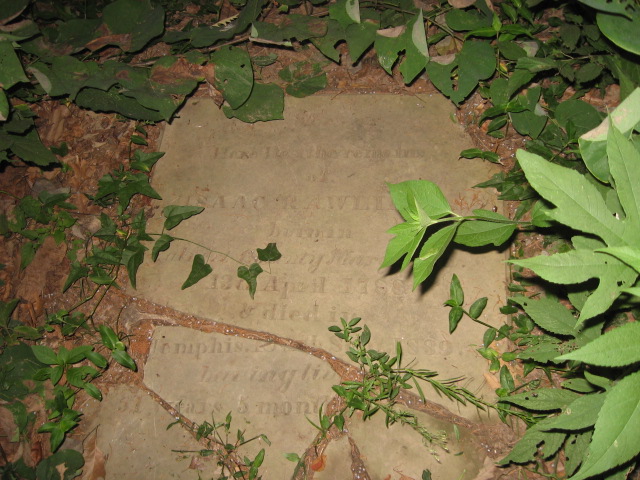Isaac "Ike" Rawlings was a substantial and early settler in this part of the country before that life had been made easier through Andrew Jackson and Isaac Shelby's treaty with the Chickasaw. He was the essential force for current inhabitants as the new "owners" (Jackson, Overton, Winchester and McClemore) of the land began to assert themselves. After the incorporation of Memphis Ike remained a populist leader, being elected mayor twice. In contrast to the wealthy and well dressed lawyers and land-owners who founded and ultimately incorporated the town Ike was a tobacco chewing old outpost proprietor with shocking manners and old fashioned wisdom.
He came here originally about 1813 with Gen. Jackson. He was also Indian agent up to the time of their removal. For a number of years he had a large quantity of Indian and army stores in the block-houses at Fort Pickering. He was in addition a kind of magistrate by popular consent, without the formality of an election or an official appointment, from which fact he was honored with the title of "Squire Rawlings," and it is written of him in the "Old Times Papers" that "it is questionable whether justice was not more equally administered then than it has ever been since."
He became a great student of law, especially of the decisions of the most distinguished judges, and if he were not one of the most learned men of the day, he was certainly one of the most mistaken men of the day.
Isaac Rawlings, as has been before stated, was an Indian trader years before the establishment of the town of Memphis, and after its establishment he continued still in the commercial line. His store at length became little else than a magistrate's office, in which he delighted to sit for hours every day arguing legal questions and giving advice upon all subjects pertaining to agriculture, commerce or law, while the simple principles upon which to conduct his own little business of merchandising, were either entirely ignored, or were as profound a mystery as was the origin of the pyramids or of the Sphinx.
He was buried in Raleigh Cemetery at length and it is said that he did not wish to be buried in that "rough river town."
(excerpted from Goodspeed's History of Shelby County Tennessee, published 1887)
Isaac "Ike" Rawlings was a substantial and early settler in this part of the country before that life had been made easier through Andrew Jackson and Isaac Shelby's treaty with the Chickasaw. He was the essential force for current inhabitants as the new "owners" (Jackson, Overton, Winchester and McClemore) of the land began to assert themselves. After the incorporation of Memphis Ike remained a populist leader, being elected mayor twice. In contrast to the wealthy and well dressed lawyers and land-owners who founded and ultimately incorporated the town Ike was a tobacco chewing old outpost proprietor with shocking manners and old fashioned wisdom.
He came here originally about 1813 with Gen. Jackson. He was also Indian agent up to the time of their removal. For a number of years he had a large quantity of Indian and army stores in the block-houses at Fort Pickering. He was in addition a kind of magistrate by popular consent, without the formality of an election or an official appointment, from which fact he was honored with the title of "Squire Rawlings," and it is written of him in the "Old Times Papers" that "it is questionable whether justice was not more equally administered then than it has ever been since."
He became a great student of law, especially of the decisions of the most distinguished judges, and if he were not one of the most learned men of the day, he was certainly one of the most mistaken men of the day.
Isaac Rawlings, as has been before stated, was an Indian trader years before the establishment of the town of Memphis, and after its establishment he continued still in the commercial line. His store at length became little else than a magistrate's office, in which he delighted to sit for hours every day arguing legal questions and giving advice upon all subjects pertaining to agriculture, commerce or law, while the simple principles upon which to conduct his own little business of merchandising, were either entirely ignored, or were as profound a mystery as was the origin of the pyramids or of the Sphinx.
He was buried in Raleigh Cemetery at length and it is said that he did not wish to be buried in that "rough river town."
(excerpted from Goodspeed's History of Shelby County Tennessee, published 1887)
Inscription
Having lived 51 yrs, 5m, 6d
Advertisement
Records on Ancestry
Sponsored by Ancestry
Advertisement






